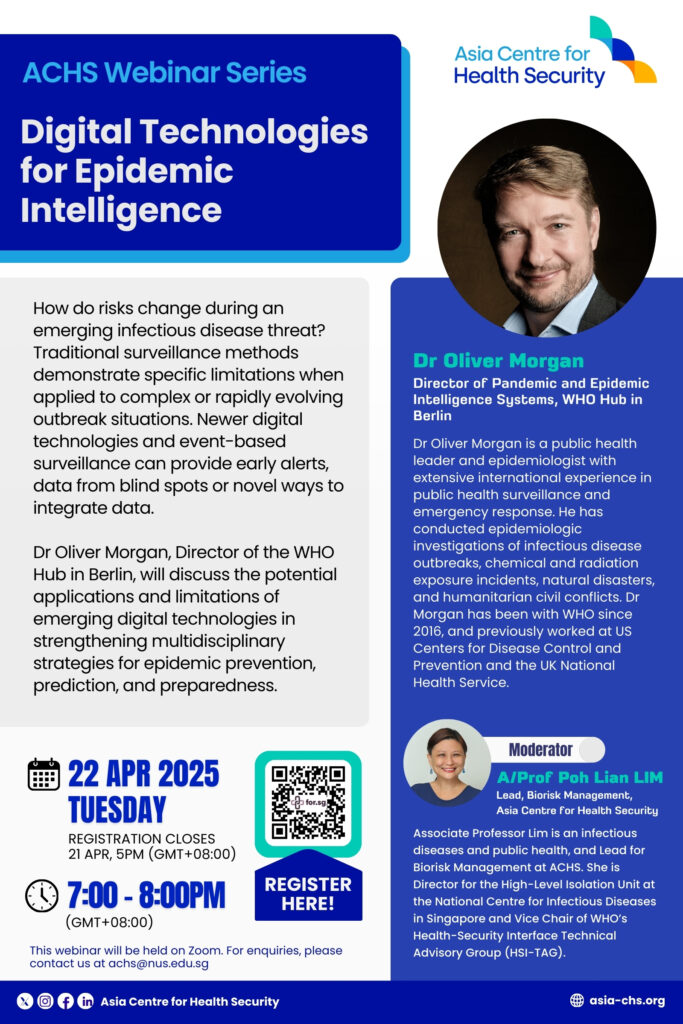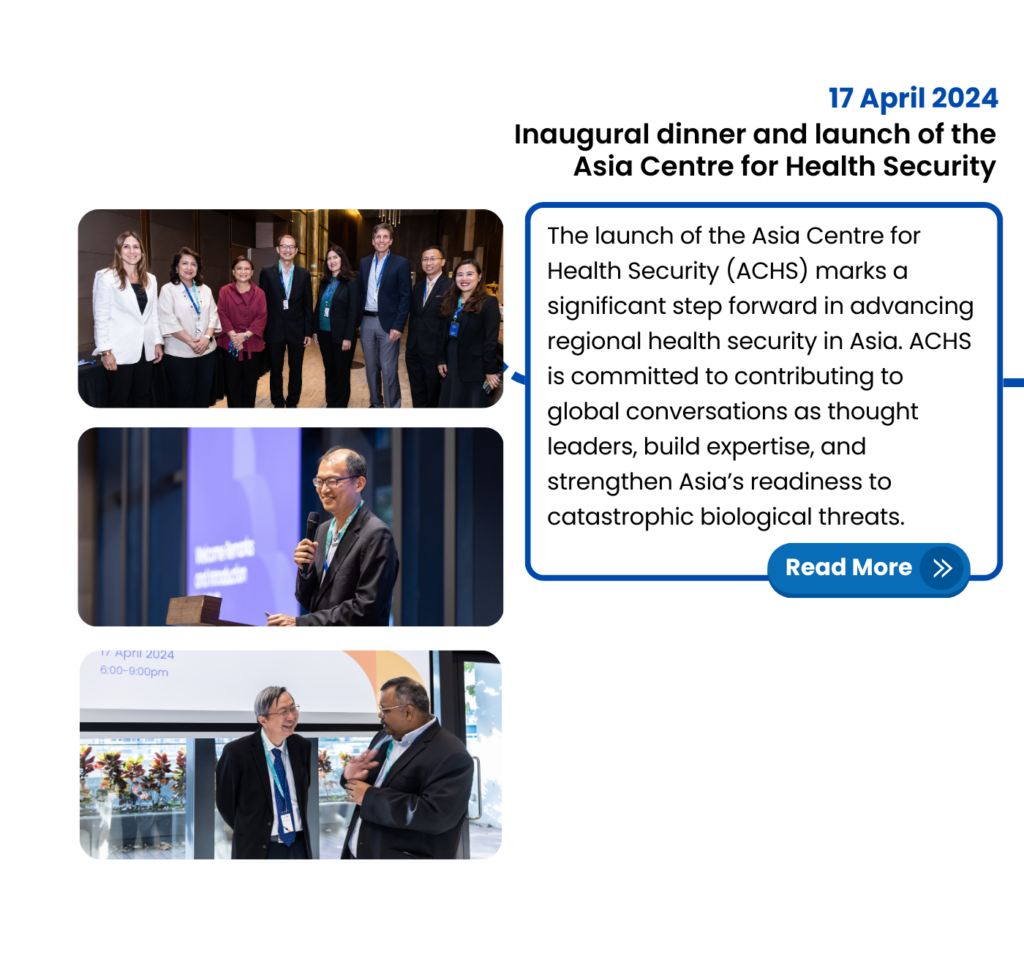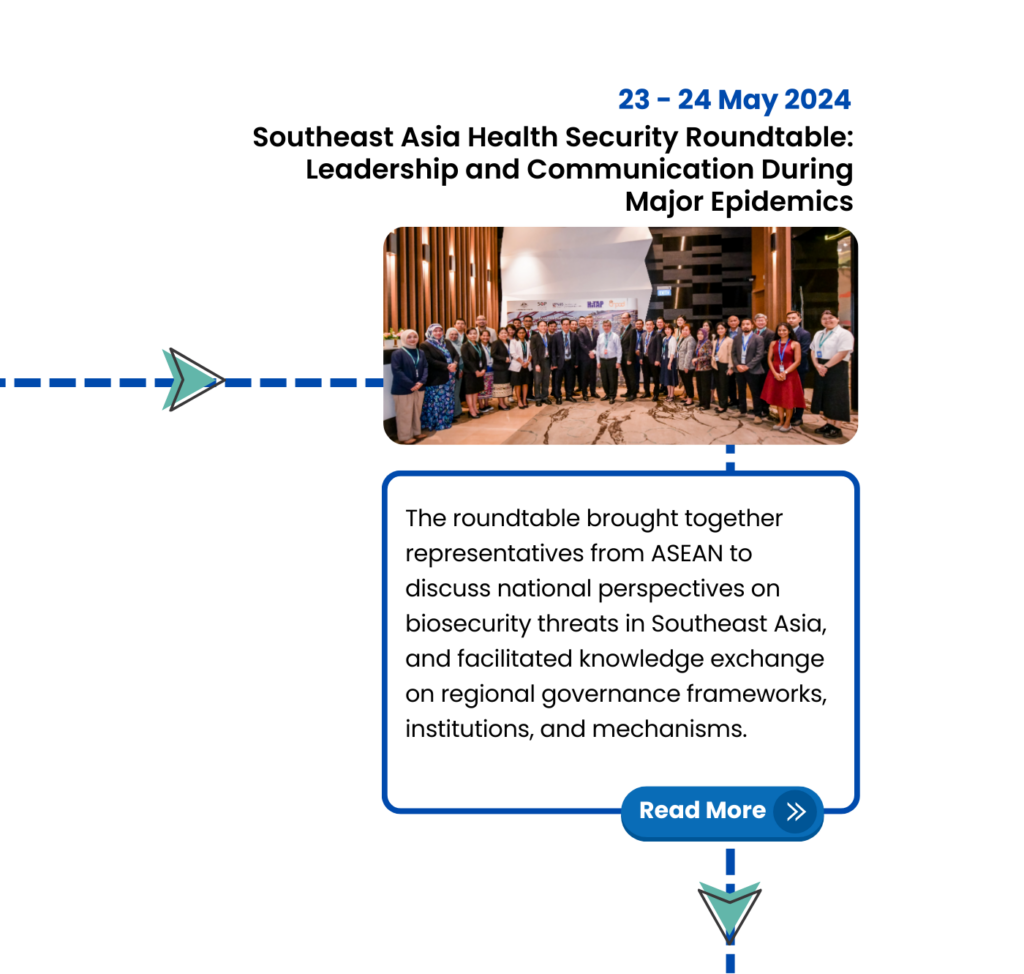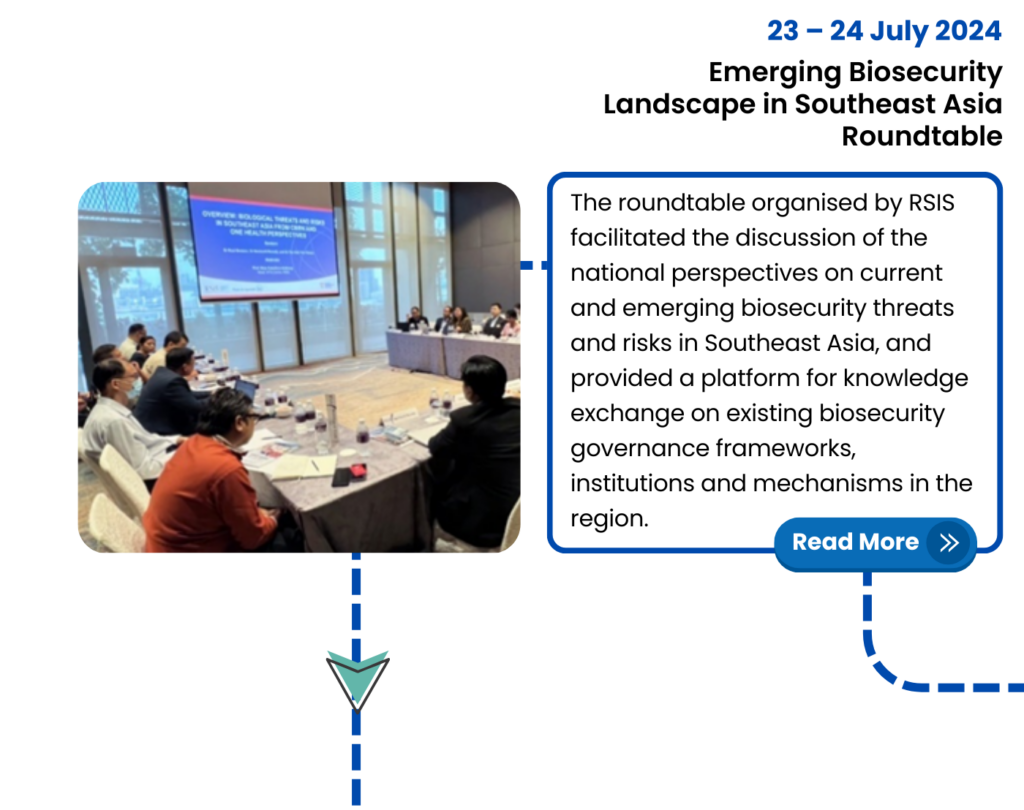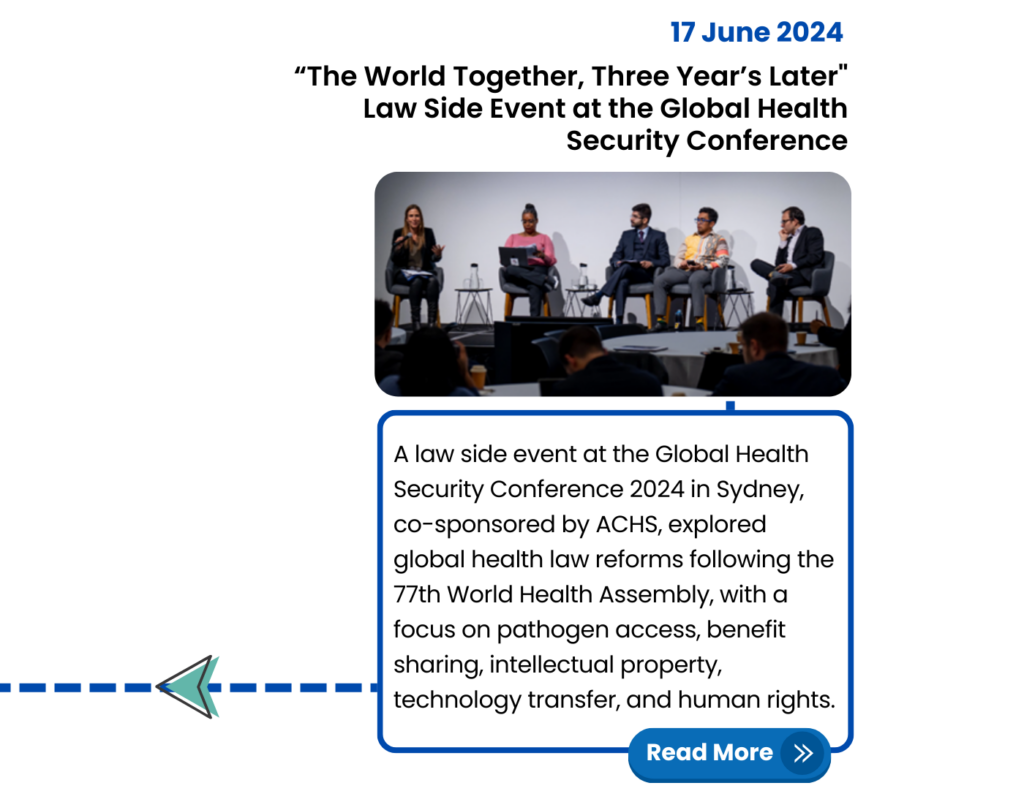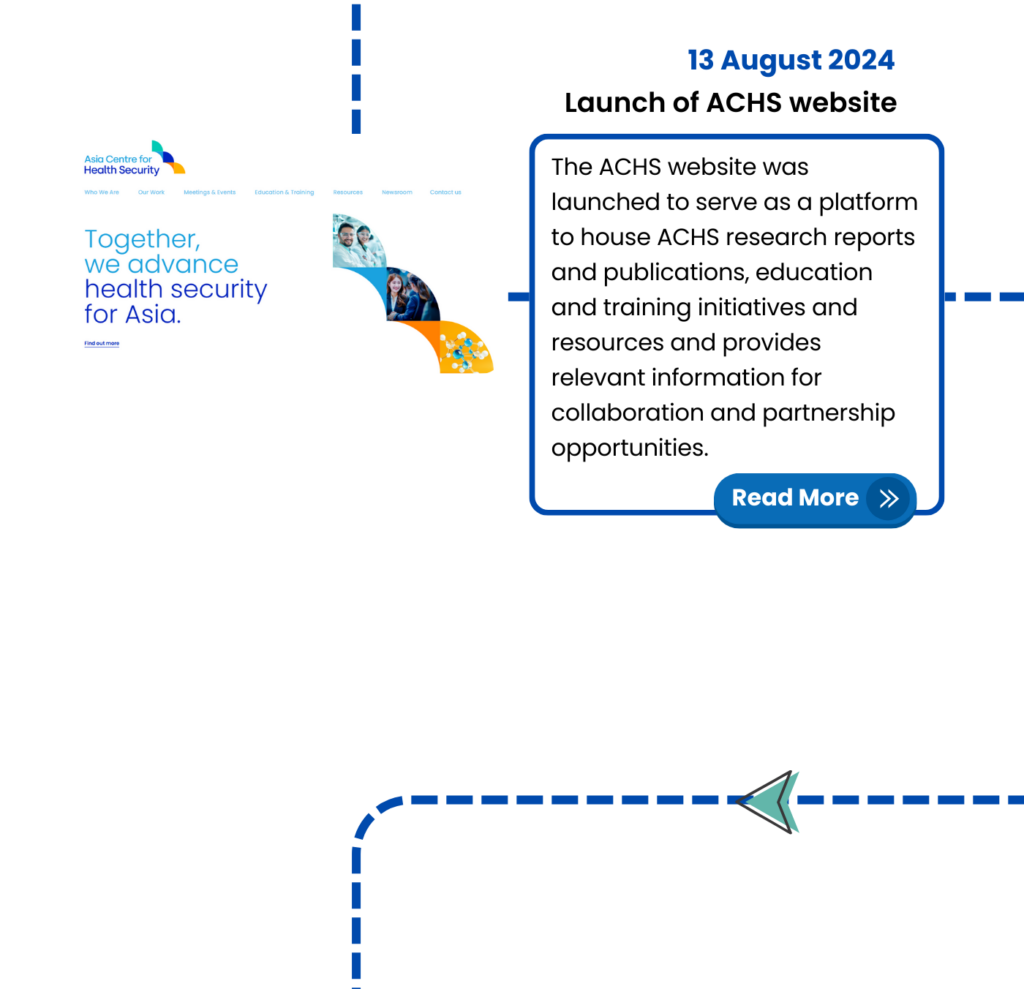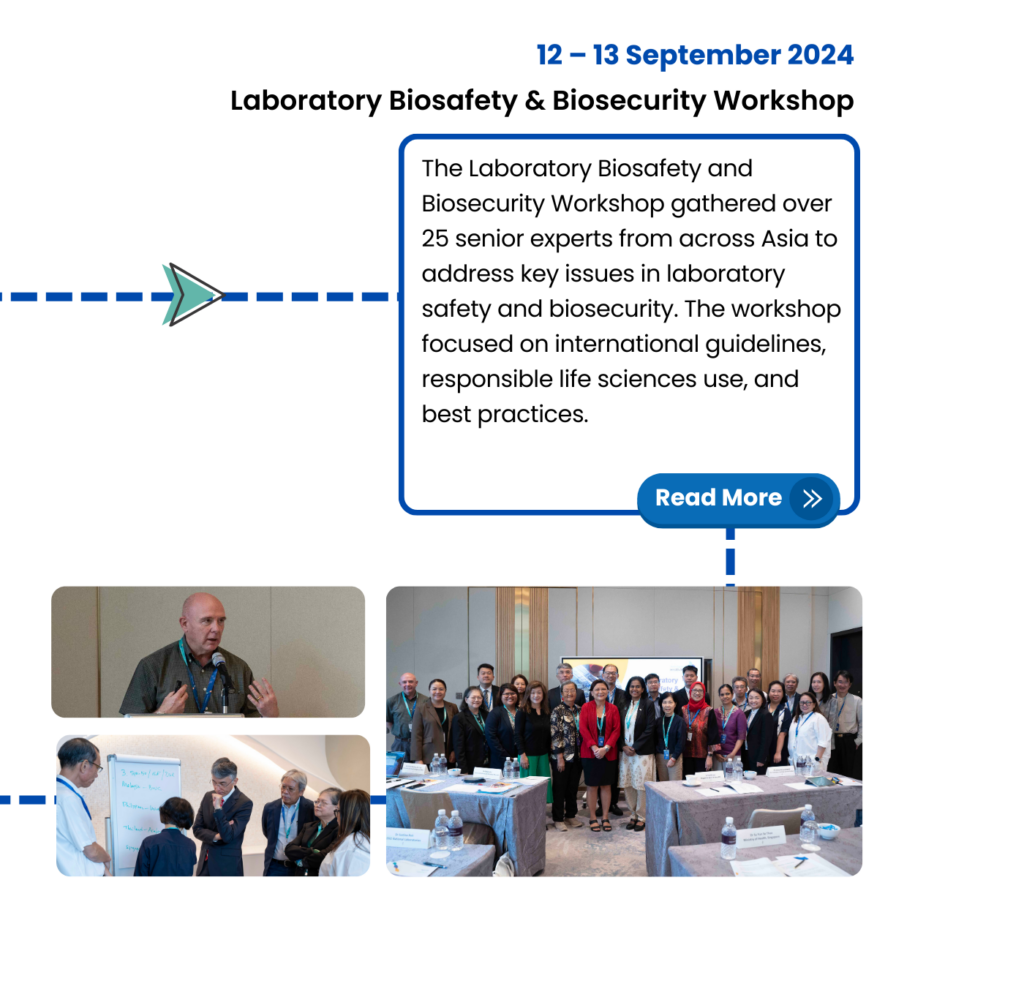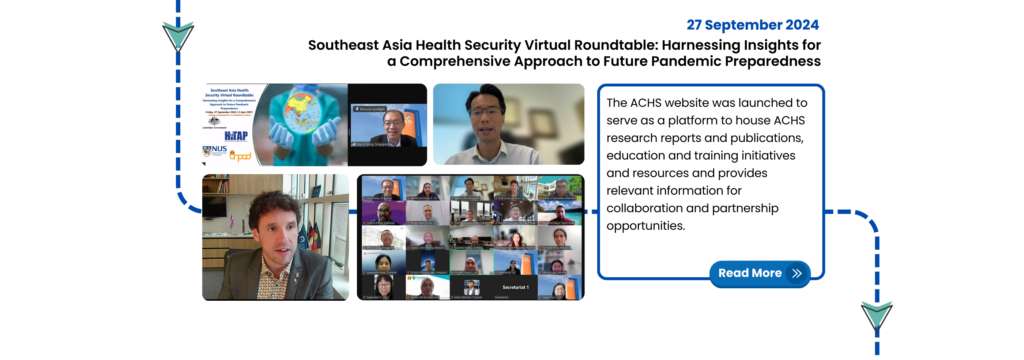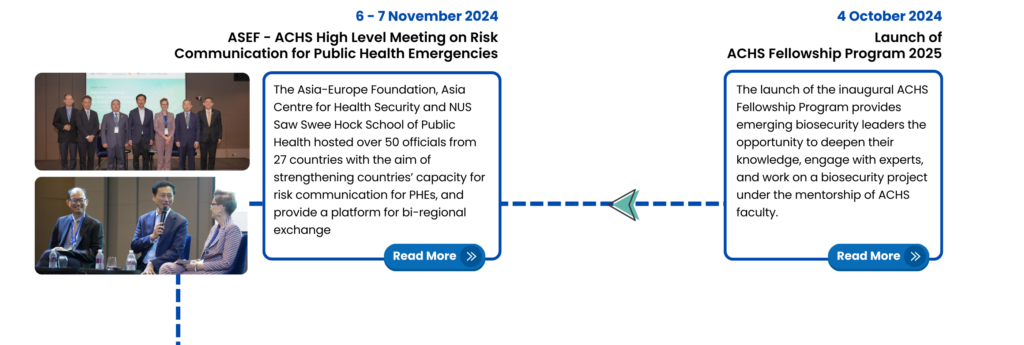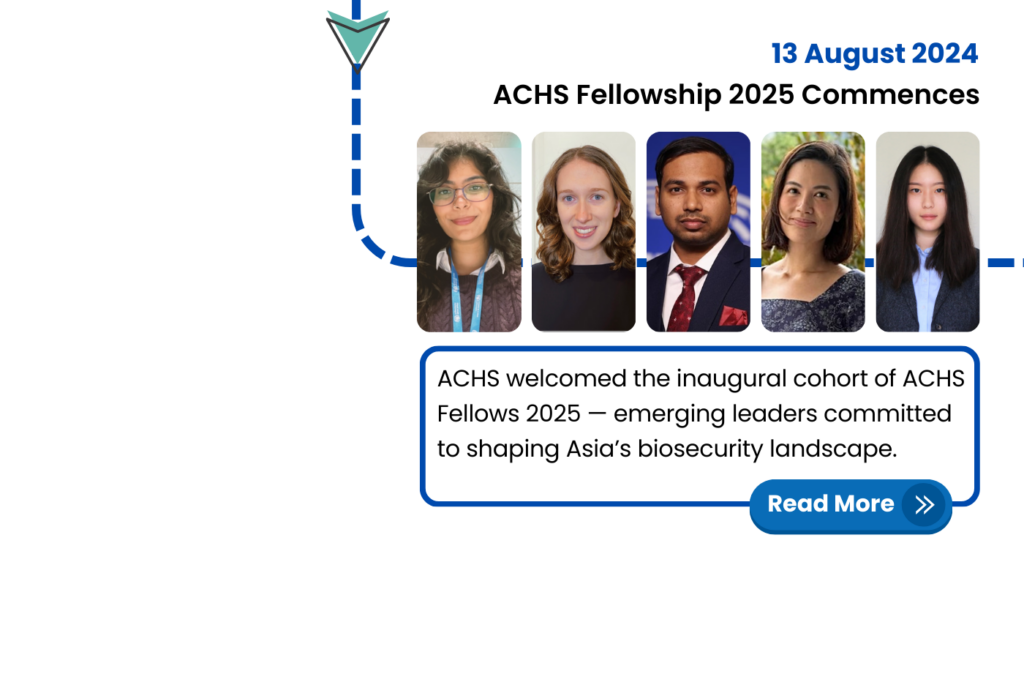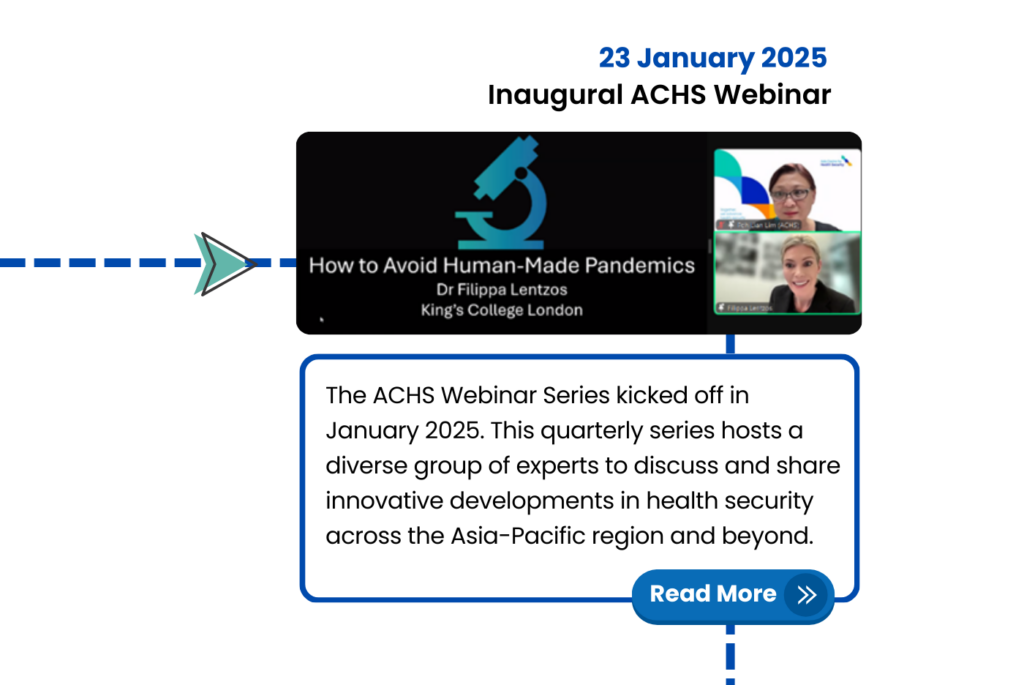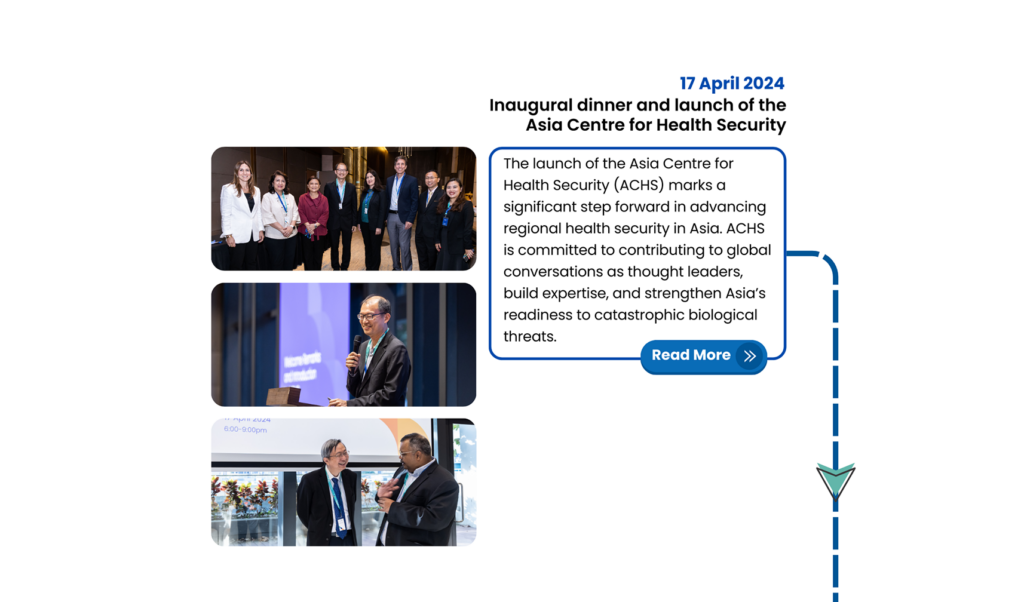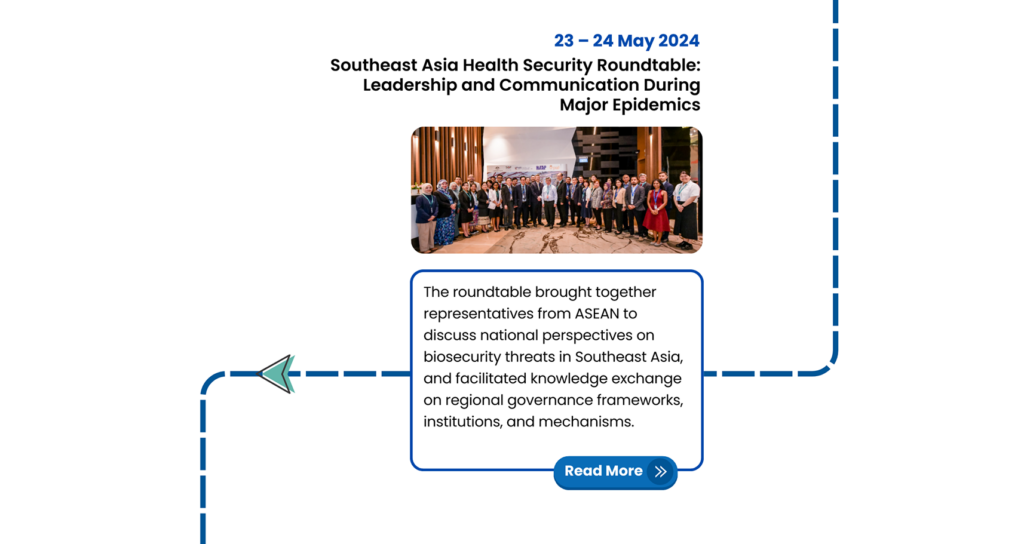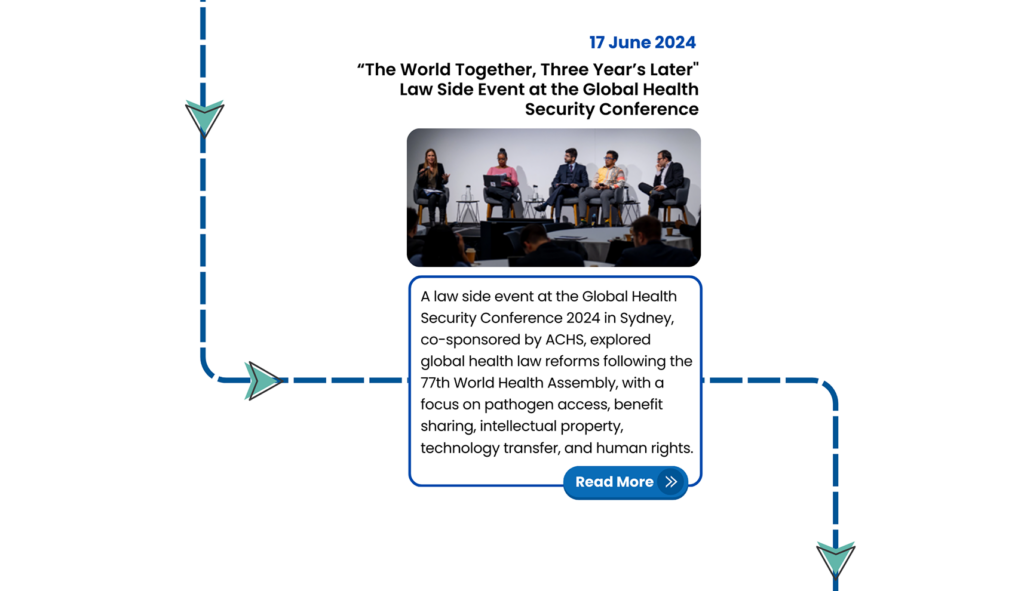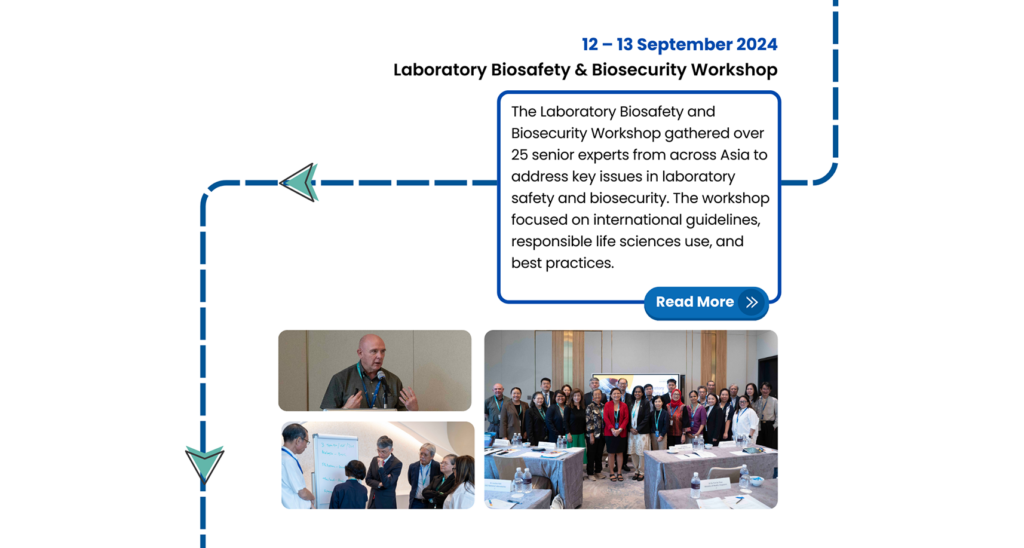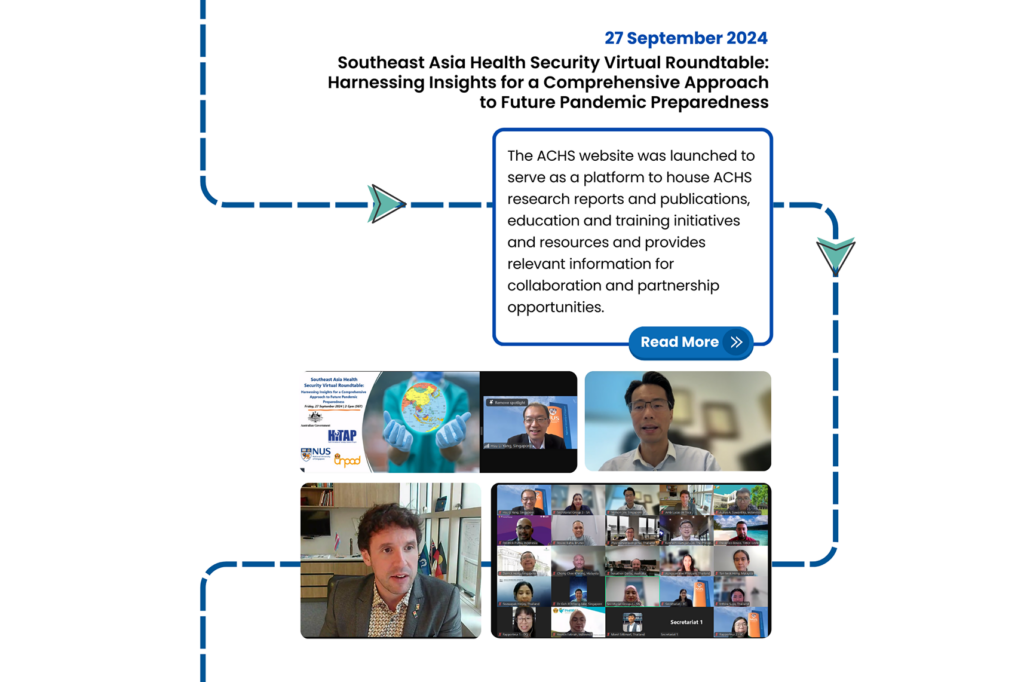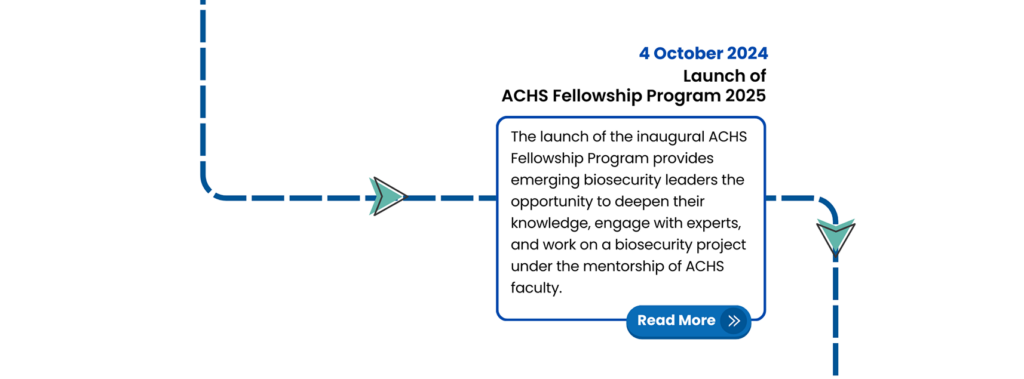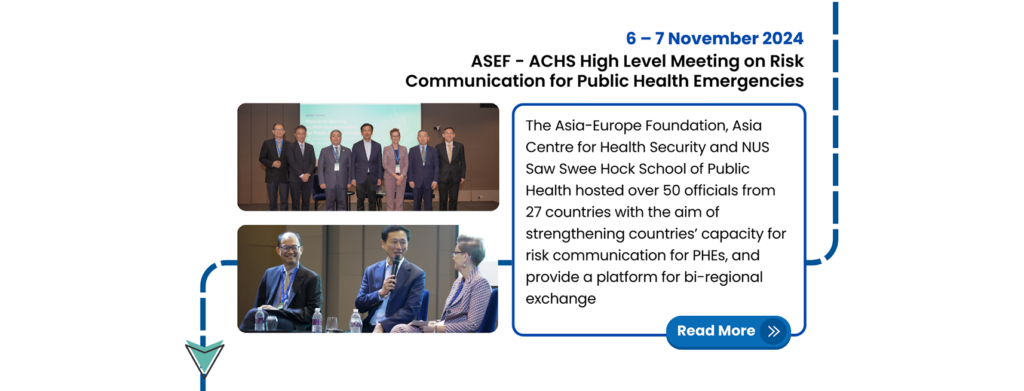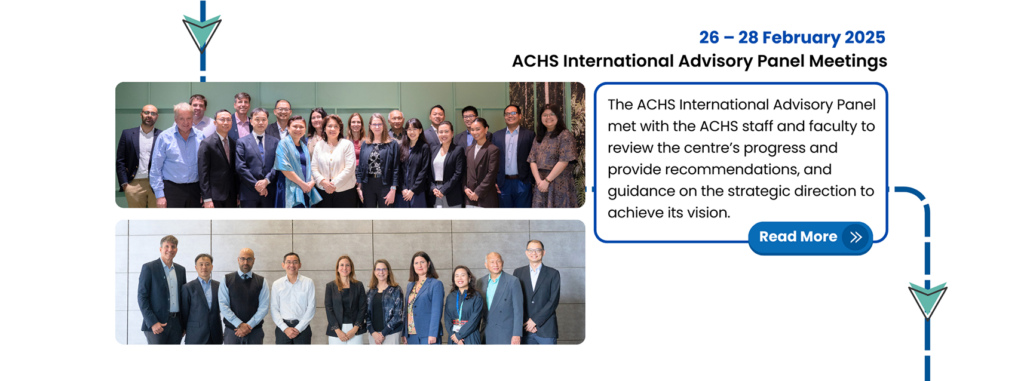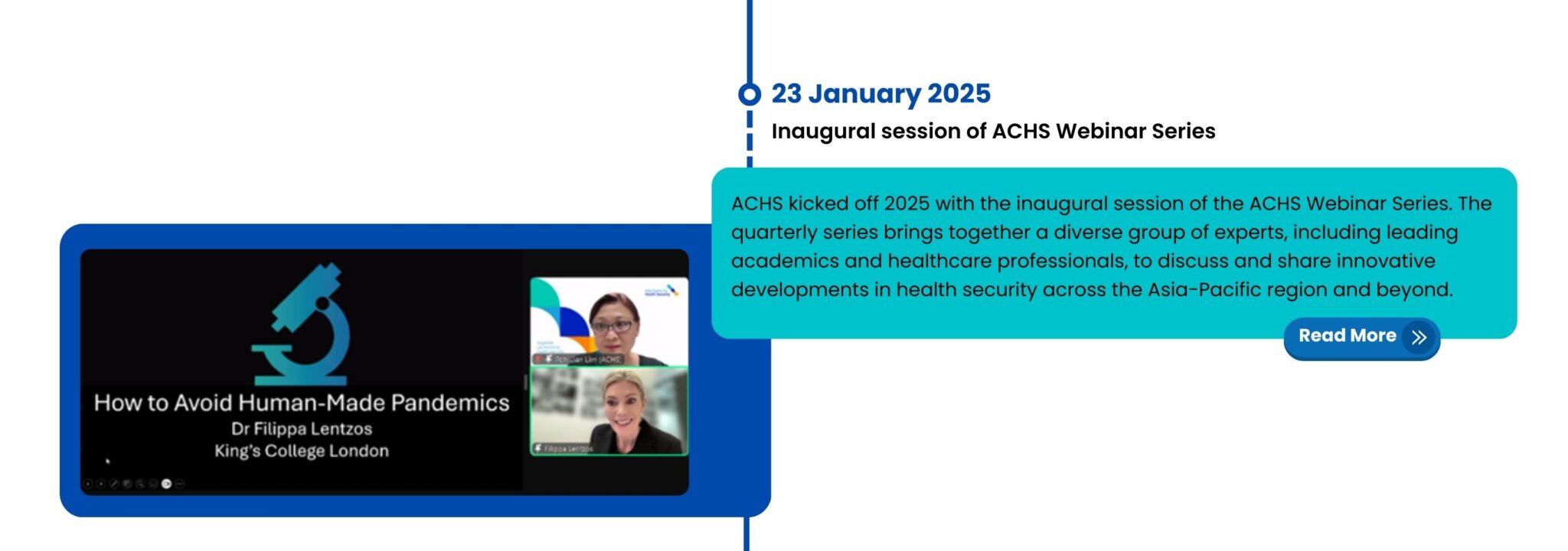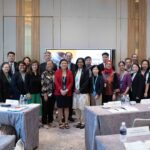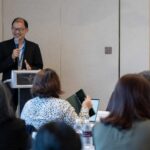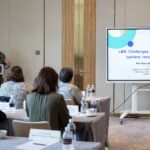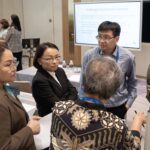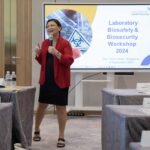- Home
- Education & training
- Webinars
- ACHS Webinar Series
Webinars
Asia Centre for Health Security (ACHS) Webinar Series

The Asia Centre for Health Security (ACHS) Webinar Series held quarterly, features a diverse group of experts, including leading academics and healthcare professionals, to discuss and share innovative developments in health security in the Asia-Pacific region and beyond.
Attendees will have the opportunity to learn from top-tier speakers, participate in Q&A sessions, and network with peers and thought leaders in the field.
Upcoming Webinar – July 2025
Risk Assessment for Deliberate Biothreat Events – 25 July 2025, 5:00pm (GMT +8:00)
Past Webinars
Digital Technologies for Epidemic Intelligence – 22 April 2025
How do risks change during an emerging infectious disease threat? Traditional surveillance methods have inherent limitations when applied to complex or rapidly evolving outbreak situations. Newer digital technologies and event-based surveillance can provide early alerts, uncover blind spots and novel ways to integrate data.
In the webinar, Dr Oliver Morgan, Director of the WHO Hub in Berlin, discussed the potential applications and limitations of emerging digital technologies in strengthening multidisciplinary strategies for epidemic prevention, prediction, and preparedness.
How to Avoid Human-Made Pandemics - 23 Jan 2025
Studying viruses with outbreak potential is one productive approach to combat the risk of pandemics. Yet, such research – when it involves field collection and experimental manipulation of pathogens – carries the hazard of accidentally or even intentionally seeding a pandemic. Dr Filippa Lentzos from King’s College London, will discussed her findings from the Pathogen Project, which brought together an international taskforce of scientists, biosecurity and public health experts, ethicists, and civil society leaders to seek consensus on this question: Can we agree on ways to manage research that carries pandemic risk as safely, securely and responsibly as possible?
Download the slides here.
Watch the recording of the webinar below
Celebrating the 1st Anniversary of ACHS
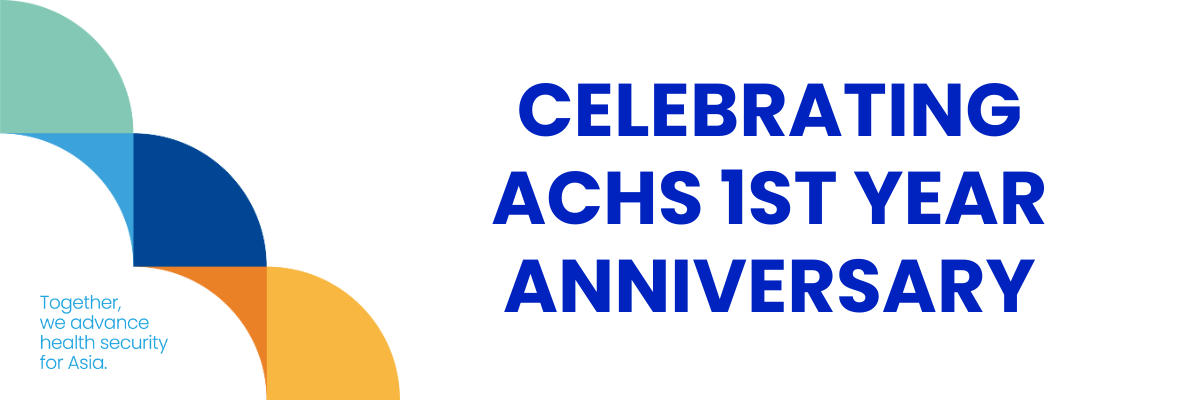
Over the past year, the Asia Centre for Health Security has grown into a dynamic platform for regional collaboration, research, and action in health security. We’ve made meaningful progress in strengthening preparedness for catastrophic biological threats, fostering regional dialogue, building capacity, supporting future leaders, and bridging research with policy. Looking ahead, ACHS remains committed to advancing health security for Asia.
To commemorate this milestone, we’ve curated a special anniversary page highlighting key achievements and insights from our first year. These efforts reflect our ongoing commitment to regional health security—and the generation of knowledge and partnerships that could lead to improving policies and practices across Asia.
Director's Message
As ACHS marks its first anniversary, Professor Hsu Li Yang, ACHS Director shares insights on the journey so far, key milestones, and our continued commitment to strengthening health security in Asia.
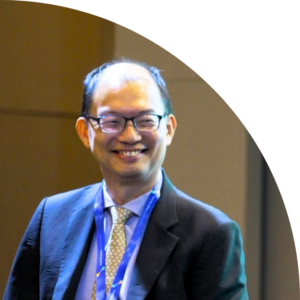
As we celebrate our first anniversary, I would like to thank our ACHS team, supporters and stakeholders for being part of this journey. Reflecting on our first year, what began as an academic think tank has quickly grown into a community for collaboration, research, and regional action on health security.
In our first year, we’ve launched a regional fellowship program to support emerging leaders in health security, brought together diverse stakeholders through high-level meetings, and initiated research that aims to shape future policy and strengthen preparedness across Asia.
These milestones reflect our commitment to a safer, more resilient region — one that is better prepared for pandemics and emerging catastrophic biological threats.
As we look ahead, we remain focused on building strong partnerships, supporting knowledge exchange, and driving forward solutions that can make a real impact on the health and well-being of communities across Asia. We’re proud of how far we’ve come, what we’ve accomplished together, and are excited about what lies ahead despite the increasing global challenges.

As we celebrate our first anniversary, I would like to thank our ACHS team, supporters and stakeholders for being part of this journey. Reflecting on our first year, what began as an academic think tank has quickly grown into a community for collaboration, research, and regional action on health security.
In our first year, we’ve launched a regional fellowship program to support emerging leaders in health security, brought together diverse stakeholders through high-level meetings, and initiated research that aims to shape future policy and strengthen preparedness across Asia.
These milestones reflect our commitment to a safer, more resilient region — one that is better prepared for pandemics and emerging catastrophic biological threats.
As we look ahead, we remain focused on building strong partnerships, supporting knowledge exchange, and driving forward solutions that can make a real impact on the health and well-being of communities across Asia. We’re proud of how far we’ve come, what we’ve accomplished together, and are excited about what lies ahead despite the increasing global challenges.
A Year in Review:
ACHS First Year Milestones
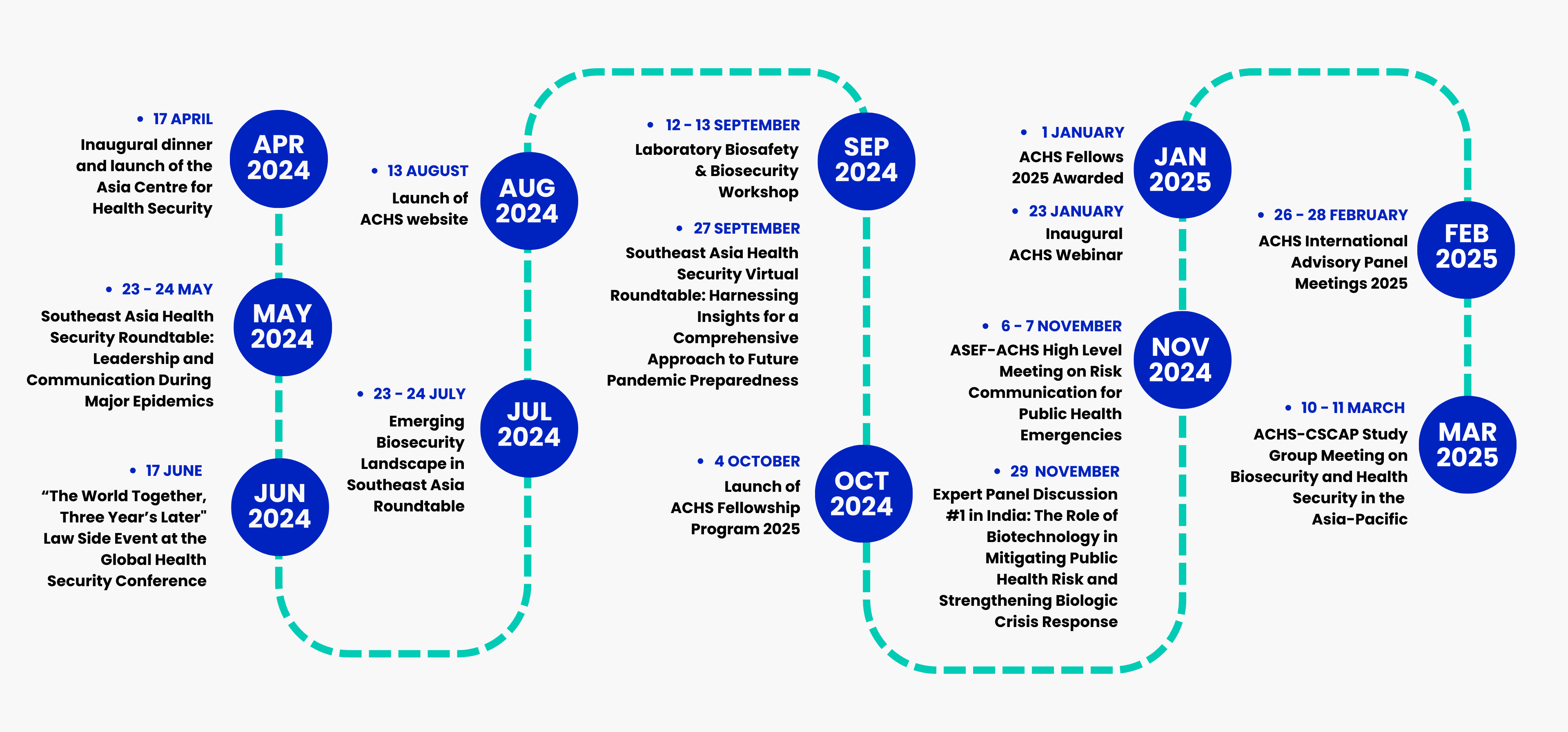
17 April 2024: Inaugural dinner and launch of the Asia Centre for Health Security
The launch of the Asia Centre for Health Security (ACHS) marks a significant step forward in advancing regional health security in Asia. ACHS is committed to contributing to global conversations as thought leaders, build expertise, and strengthen Asia’s readiness to catastrophic biological threats.
23 – 24 May 2024: Southeast Asia Health Security Roundtable: Leadership and Communication During Major Epidemics
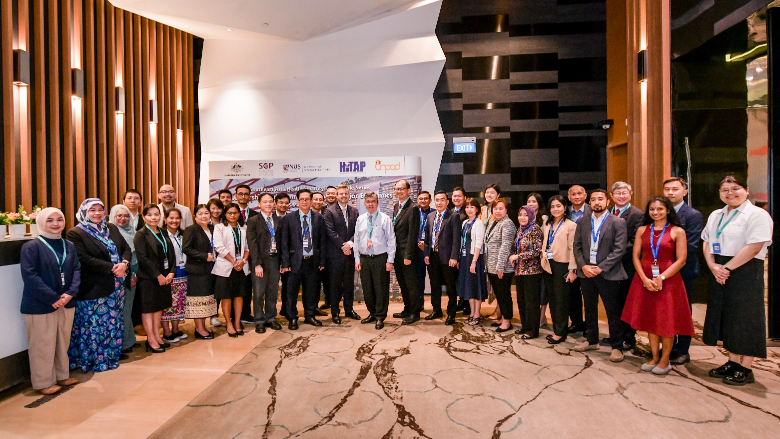
The roundtable brought together representatives from ASEAN to discuss national perspectives on biosecurity threats in Southeast Asia, and facilitated knowledge exchange on regional governance frameworks, institutions, and mechanisms.
17 June 2024: “The World Together, Three Year’s Later" Law Side Event at the Global Health Security Conference
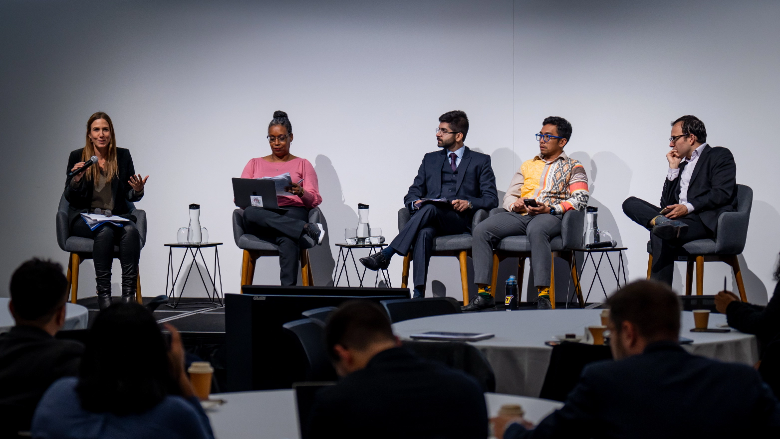
A law side event at the Global Health Security Conference 2024 in Sydney, co-sponsored by ACHS, explored global health law reforms following the 77th World Health Assembly, with a focus on pathogen access, benefit sharing, intellectual property, technology transfer, and human rights.
23 – 24 July 2024: Emerging Biosecurity Landscape in Southeast Asia Roundtable
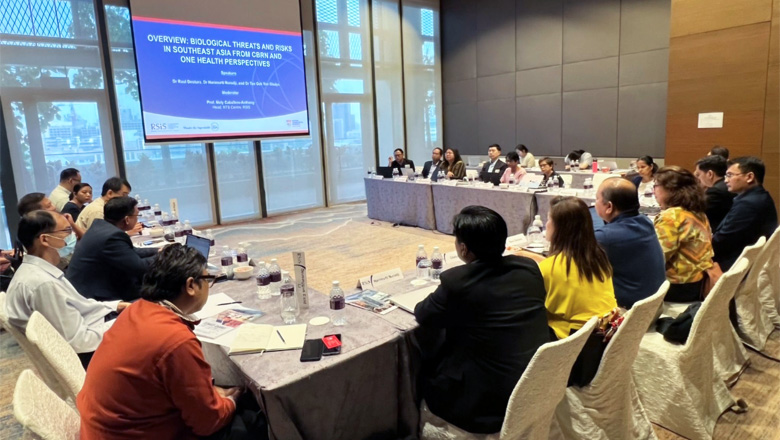
The roundtable organised by RSIS facilitated the discussion of the national perspectives on current and emerging biosecurity threats and risks in Southeast Asia, and provided a platform for knowledge exchange on existing biosecurity governance frameworks, institutions and mechanisms in the region.
13 August 2024: Launch of ACHS website
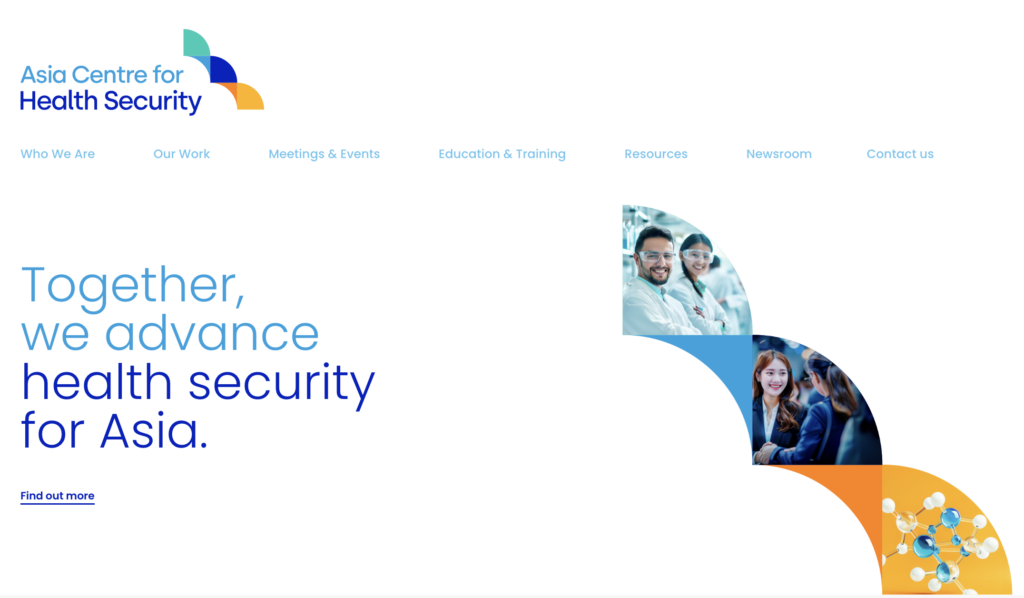
The ACHS website was launched to serve as a platform to house ACHS research reports and publications, education and training initiatives and resources and provides relevant information for collaboration and partnership opportunities.
12 – 13 September 2024: Laboratory Biosafety & Biosecurity Workshop
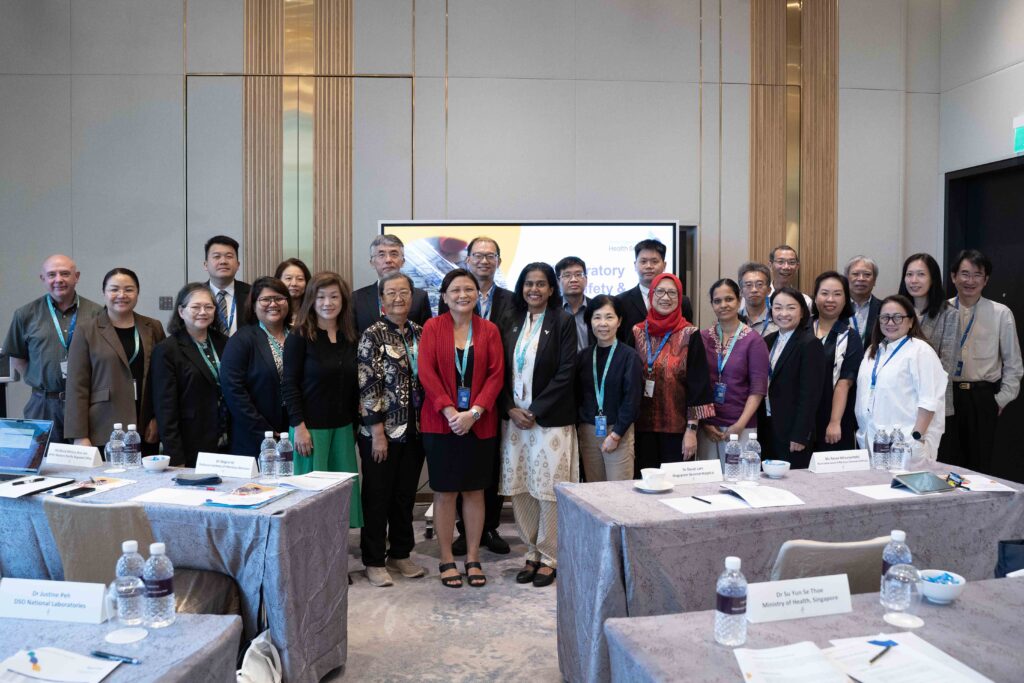
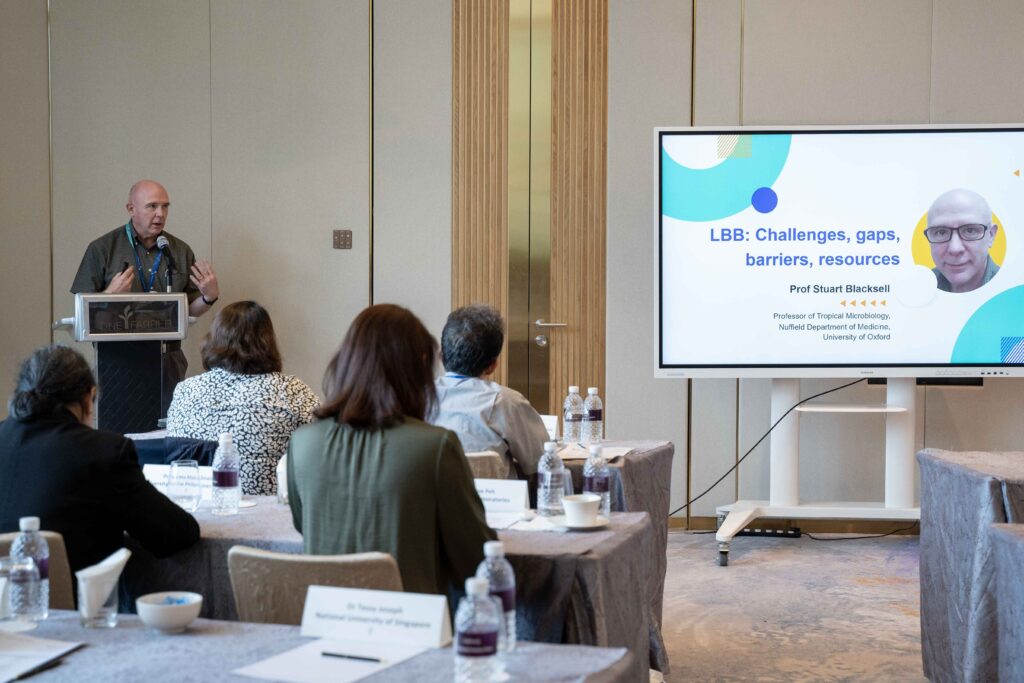
The Laboratory Biosafety and Biosecurity Workshop gathered over 25 senior experts from across Asia to address key issues in laboratory safety and biosecurity. The workshop focused on international guidelines, responsible life sciences use, and best practices.
27 September 2024: Southeast Asia Health Security Virtual Roundtable: Harnessing Insights for a Comprehensive Approach to Future Pandemic Preparedness
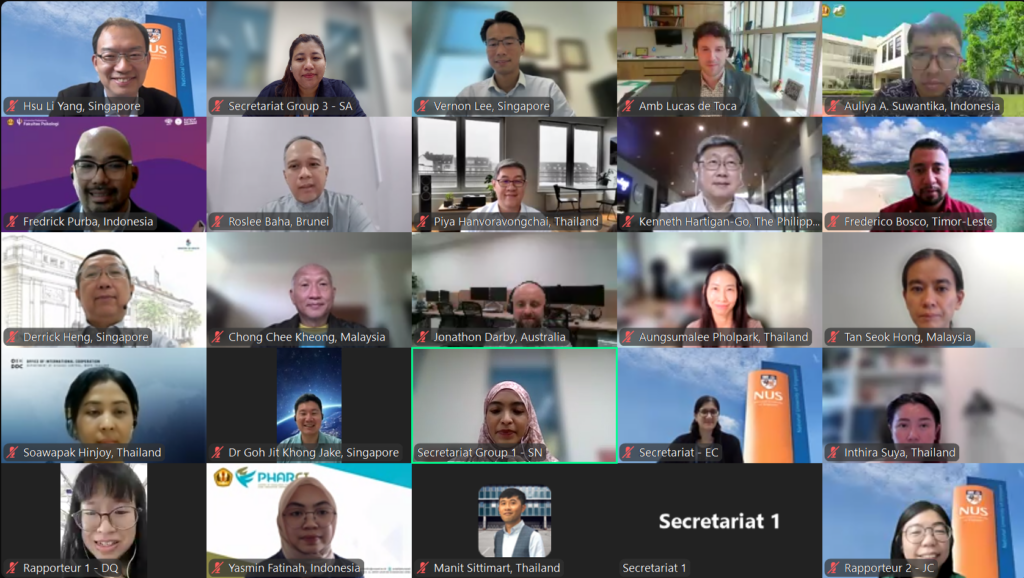
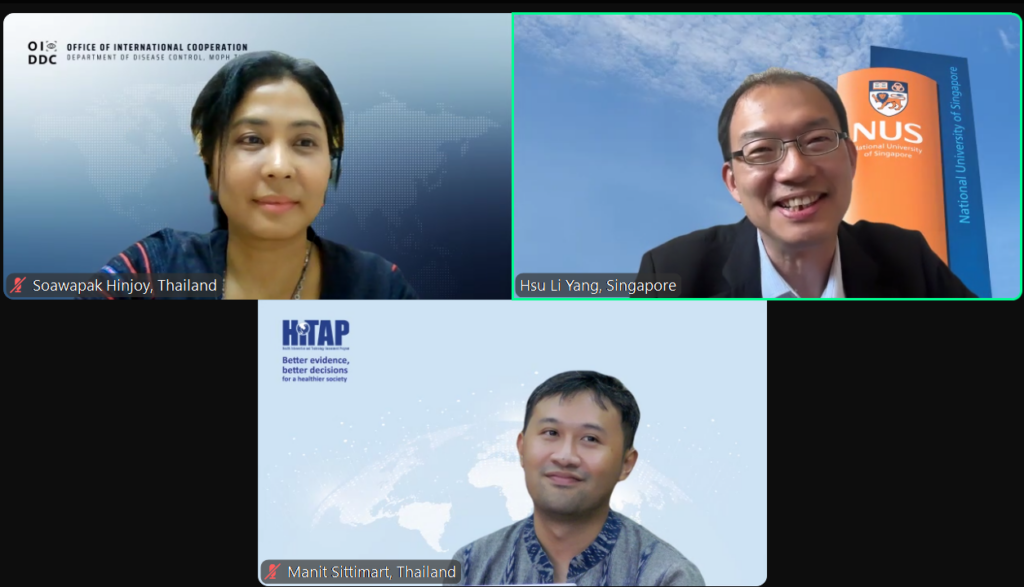
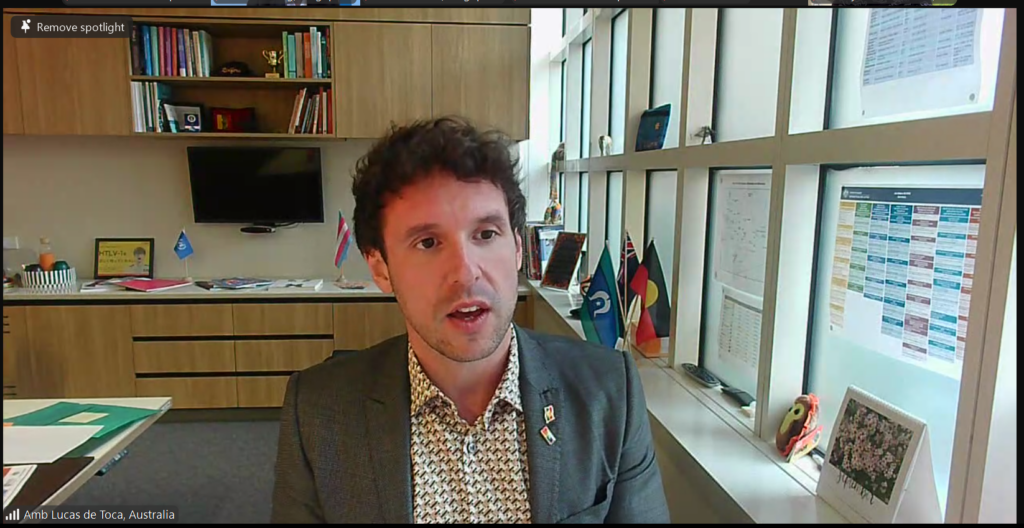
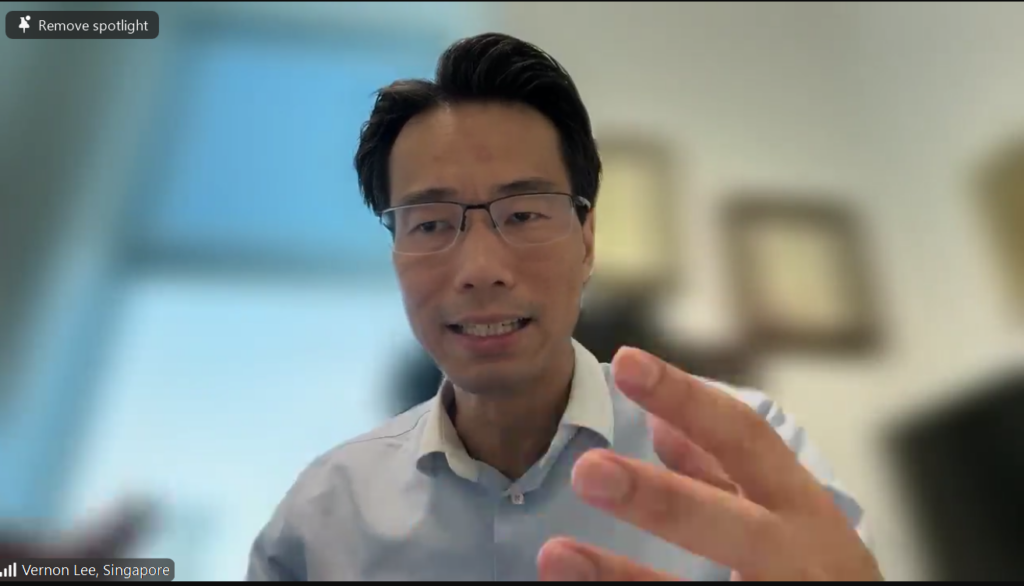
The ACHS website was launched to serve as a platform to house ACHS research reports and publications, education and training initiatives and resources and provides relevant information for collaboration and partnership opportunities.
4 October 2024: Launch of ACHS Fellowship Program 2025

The launch of the inaugural ACHS Fellowship Program provides emerging biosecurity leaders the opportunity to deepen their knowledge, engage with experts, and work on a biosecurity project under the mentorship of ACHS faculty.
6 – 7 November 2024: ASEF - ACHS High Level Meeting on Risk Communication for Public Health Emergencies

The Asia-Europe Foundation, Asia Centre for Health Security and NUS Saw Swee Hock School of Public Health hosted over 50 officials from 27 countries with the aim of strengthening countries’ capacity for risk communication for PHEs, and provide a platform for bi-regional exchange
29 November 2024: Expert Panel Discussion #1 in India: The Role of Biotechnology in Mitigating Public Health Risk and Strengthening Biologic Crisis Response
Asia’s pandemic preparedness remains a concern, with COVID-19 revealing critical gaps in healthcare and crisis response. To address this, expert panels in India will explore biosecurity, data-driven surveillance, and leadership strategies. Insights will guide future planning, with a disease X simulation to follow in one Asian country.
1 January 2025: ACHS Fellowship 2025 Commences
ACHS welcomed the inaugural cohort of ACHS Fellows 2025 — emerging leaders committed to shaping Asia’s biosecurity landscape.
23 January 2025: Inaugural ACHS Webinar
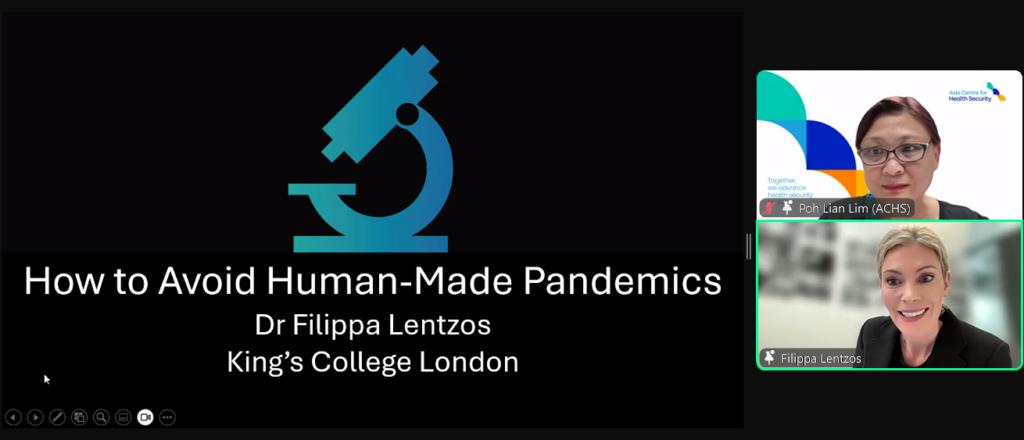
The ACHS Webinar Series kicked off in January 2025. This quarterly series hosts a diverse group of experts to discuss and share innovative developments in health security across the Asia-Pacific region and beyond.
26 – 28 February 2025: ACHS International Advisory Panel Meetings
The ACHS International Advisory Panel met with the ACHS staff and faculty to review the centre’s progress and provide recommendations, and guidance on the strategic direction to achieve its vision.
10 – 11 March 2025: ACHS-CSCAP Study Group Meeting on Biosecurity and Health Security in the Asia-Pacific




The NTS Centre at RSIS, in collaboration with ACHS, hosted the inaugural CSCAP Study Group Meeting on Biosecurity and Health Security. Co-chaired by CSCAP Singapore, New Zealand, and Japan, the meeting fostered discussions on regional challenges. Key findings from the RSIS baseline study on Southeast Asia’s biosecurity landscape were presented to inform future priorities.
ACHS 1st Year Anniversary Dinner
The 1st year anniversary was marked by a special dinner attended by ACHS faculty and staff. The evening was a time of reflection on the collective efforts and milestones that we achieved in the first year. The team also renewed their commitment and dedication to making a meaningful impact through leading conversations, building expertise, and strengthening regional preparedness against health security threats in the region.
Looking Ahead
As we step into our second year, we remain deeply committed to strengthening partnerships, exploring innovative solutions, and leading efforts to enhance health security across Asia. We look forward to working alongside our partners in Asia and beyond to advance health security by ensuring communities are better prepared for health security threats.
To stay updated on ACHS initiatives, we invite you to subscribe to our mailing list.
Celebrating One-Year of ACHS!
As we celebrate our first year, we reflect on the progress and pivotal moments that have shaped our journey in strengthening the region’s preparedness for biological challenges. ACHS has made significant strides in fostering regional dialogue, building capacity, investing in future leaders, and bridging research and policy. From convening experts at high-level roundtables to launching the ACHS Fellowship Program 2025, we’ve laid a strong foundation for continued growth and impact. Looking ahead, ACHS remains committed to advancing health security in Asia.
As we celebrate this milestone, we reflect on our achievements and look forward to the opportunities and challenges that lie ahead in the coming years.
Director's Message

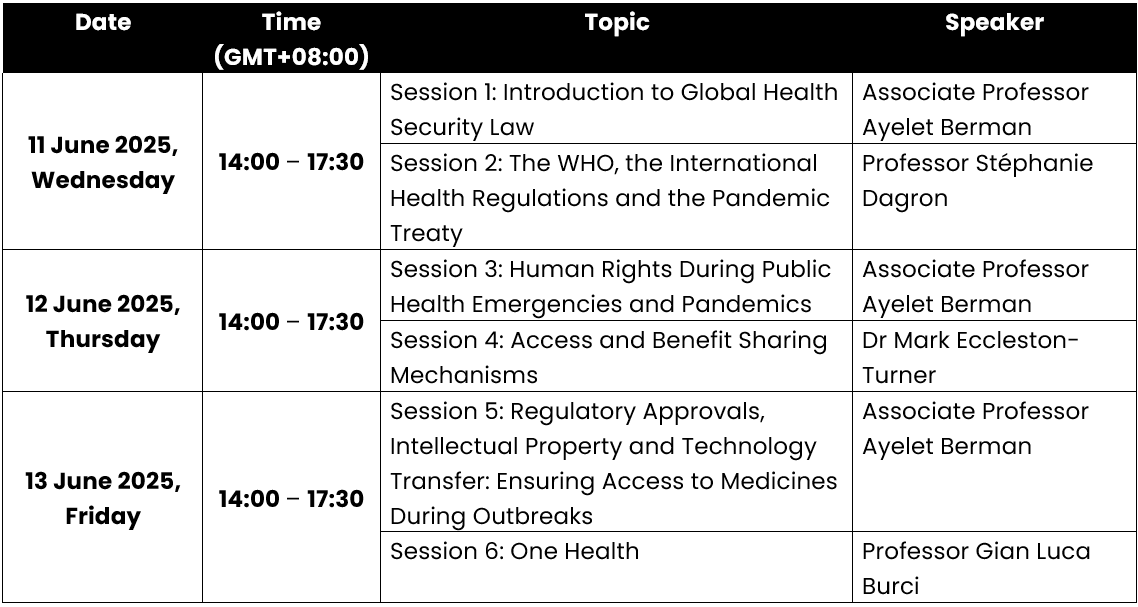

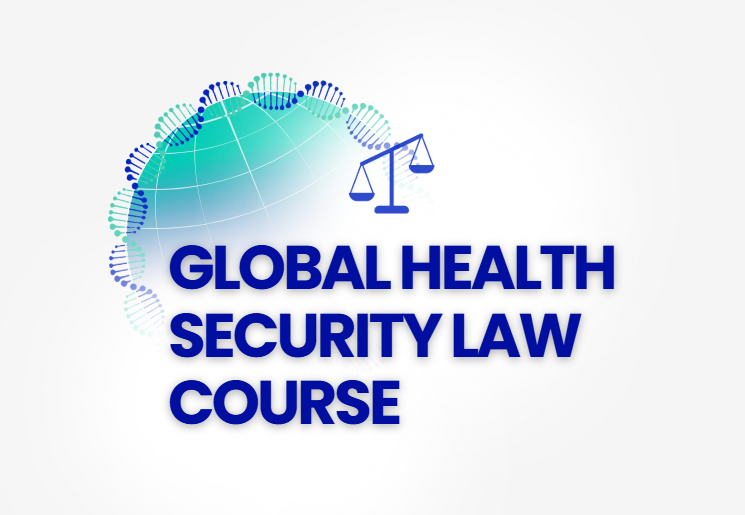
How to Avoid Human-Made Pandemics - 23 Jan 2025
Studying viruses with outbreak potential is one productive approach to combat the risk of pandemics. Yet, such research – when it involves field collection and experimental manipulation of pathogens – carries the hazard of accidentally or even intentionally seeding a pandemic. Dr Filippa Lentzos from King’s College London, will discussed her findings from the Pathogen Project, which brought together an international taskforce of scientists, biosecurity and public health experts, ethicists, and civil society leaders to seek consensus on this question:

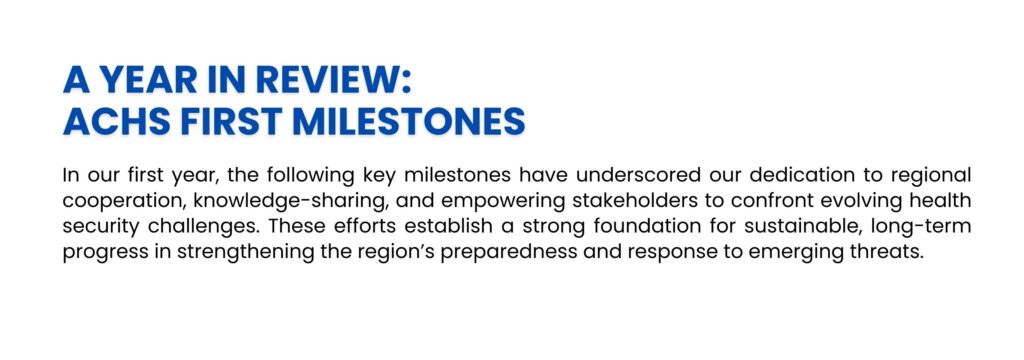

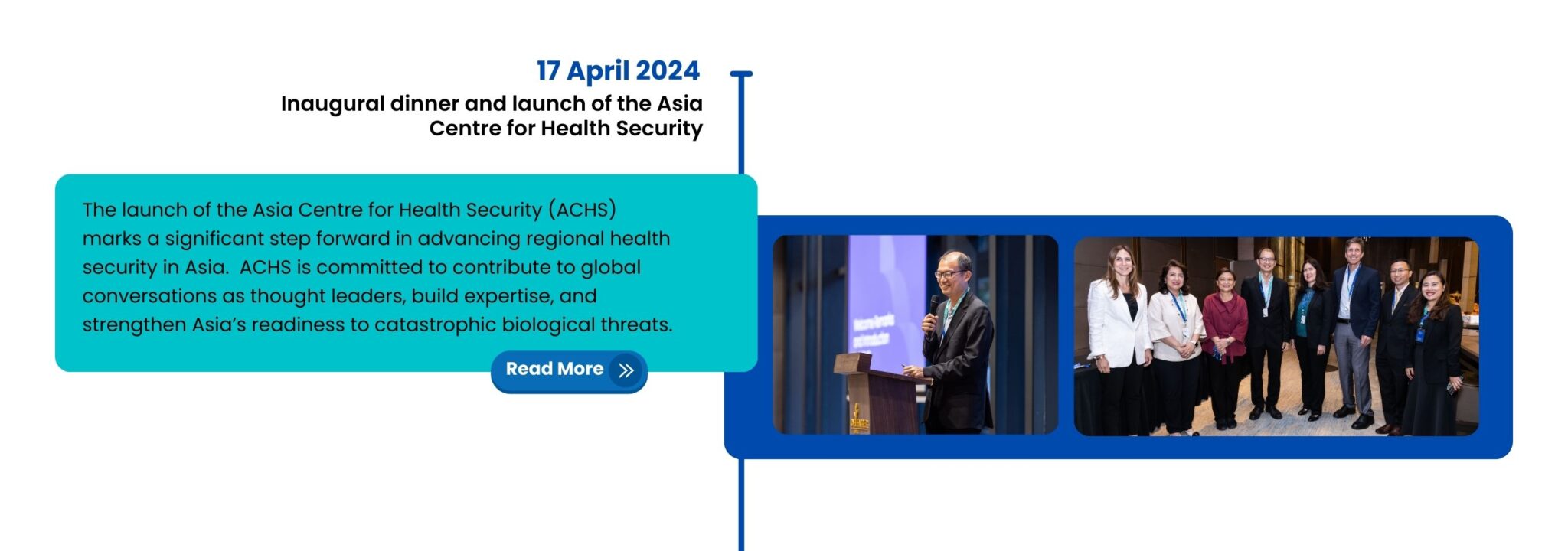
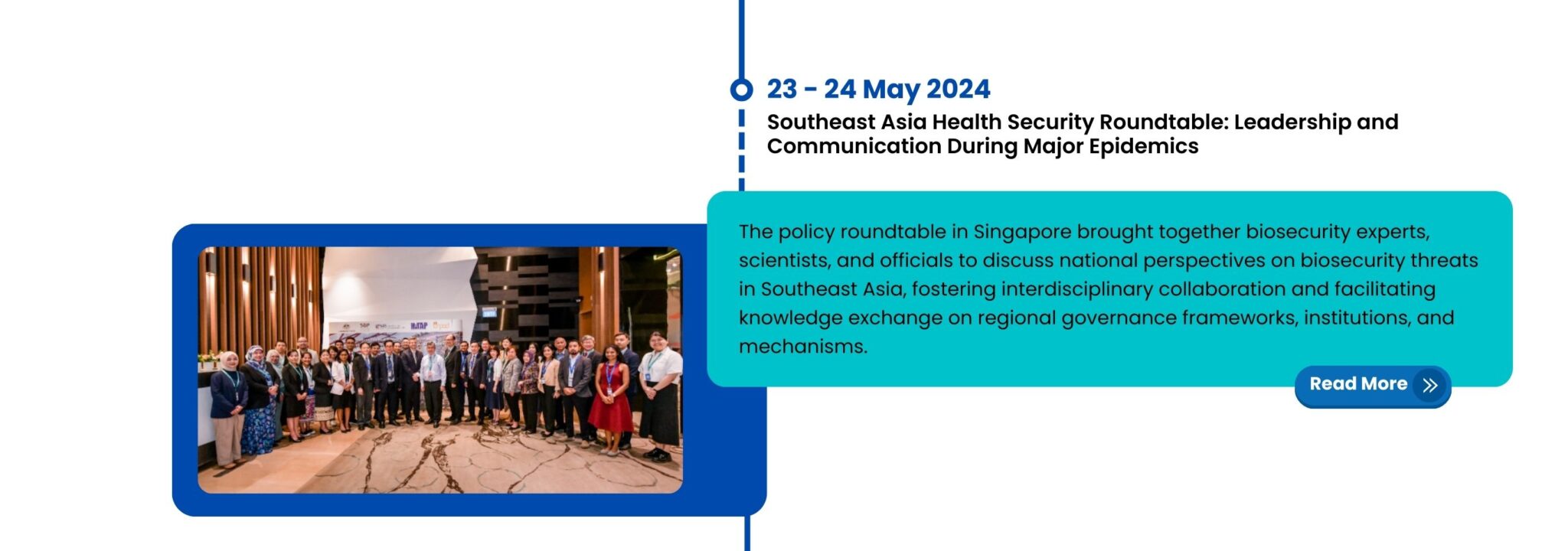
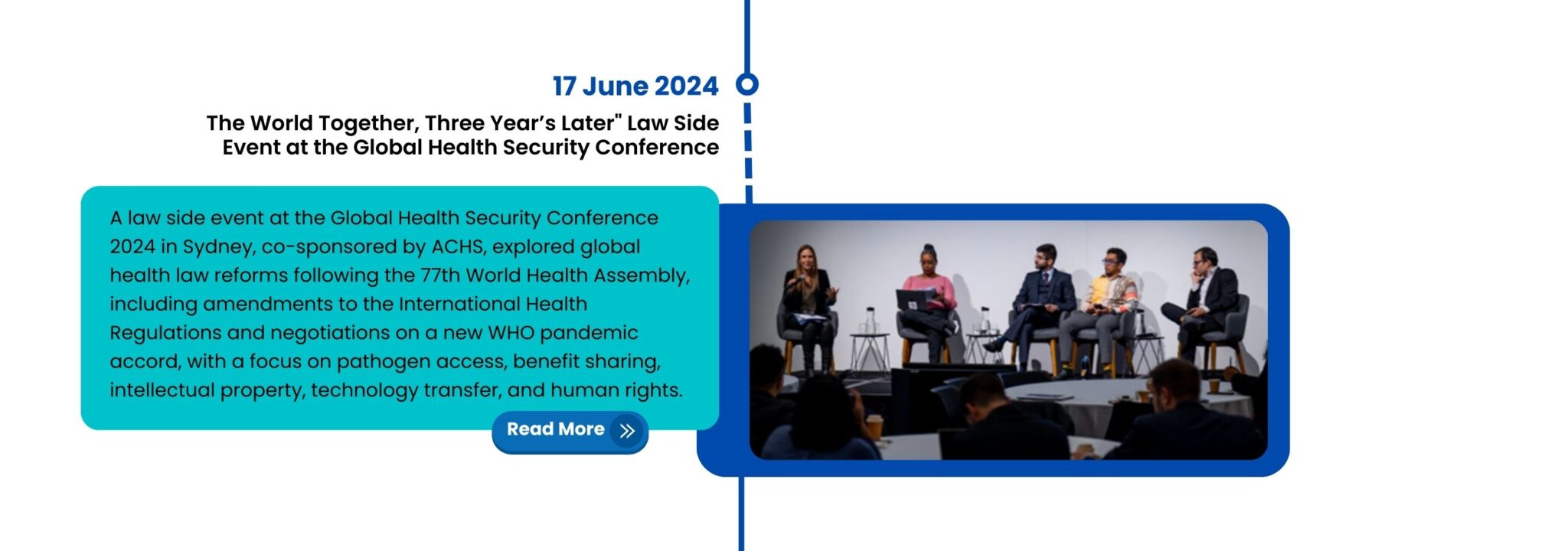
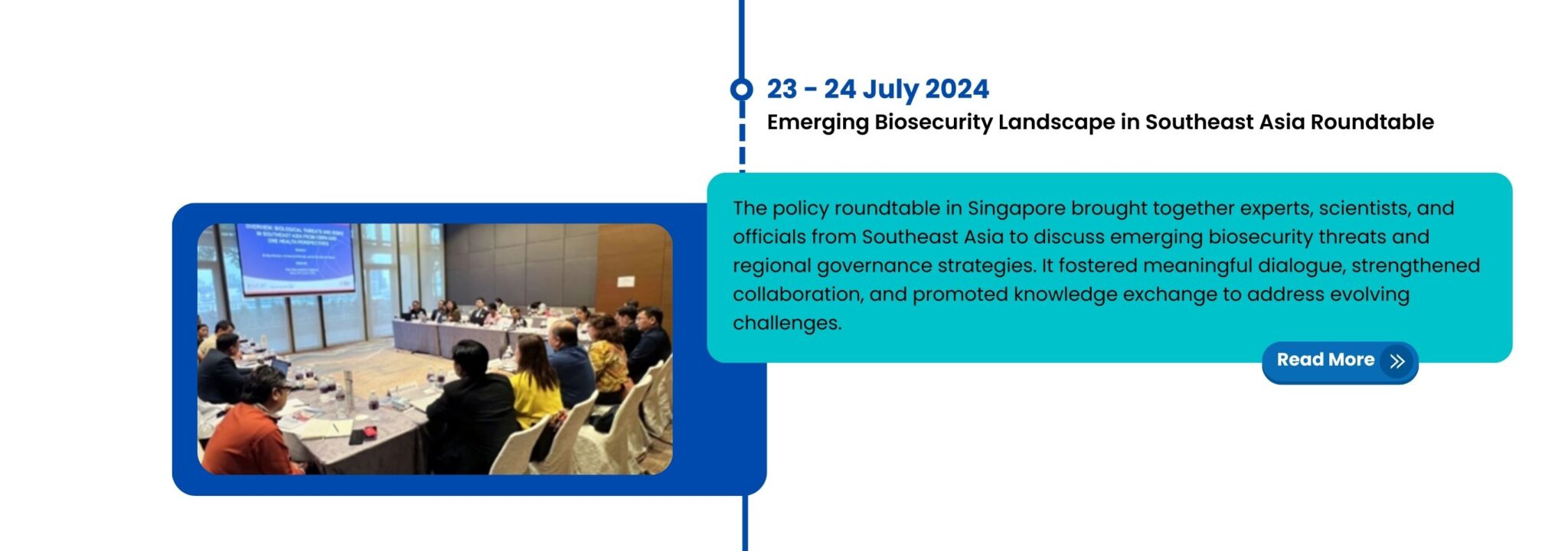
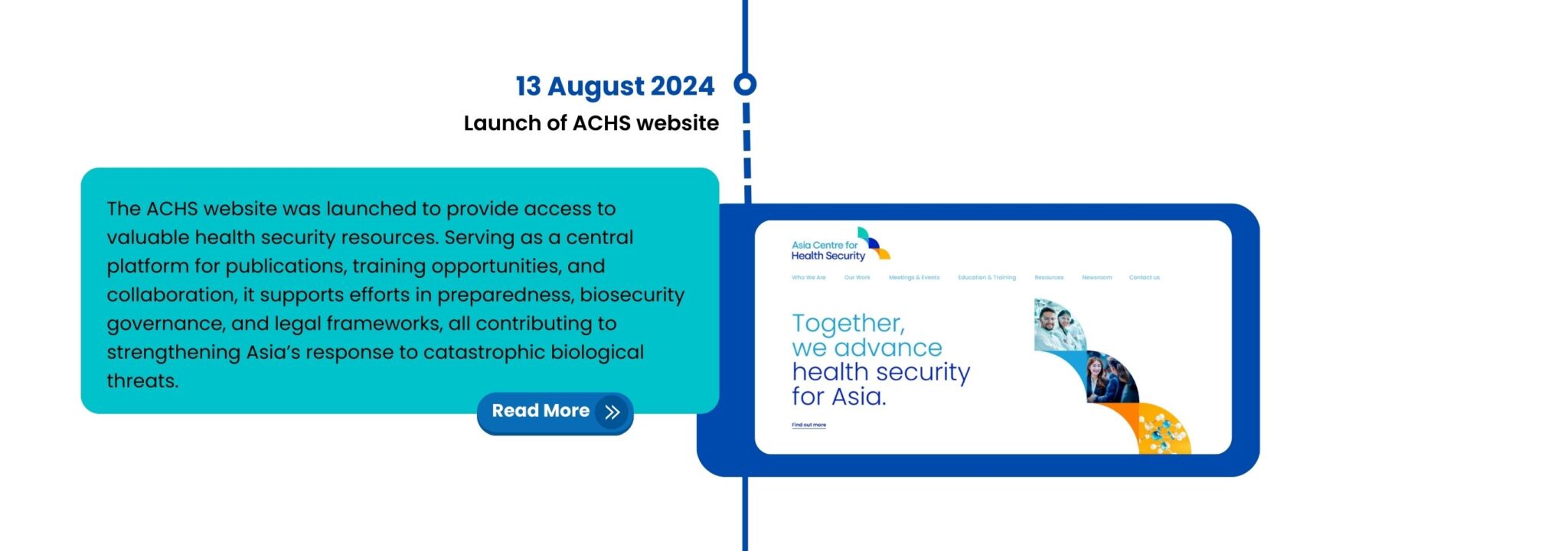
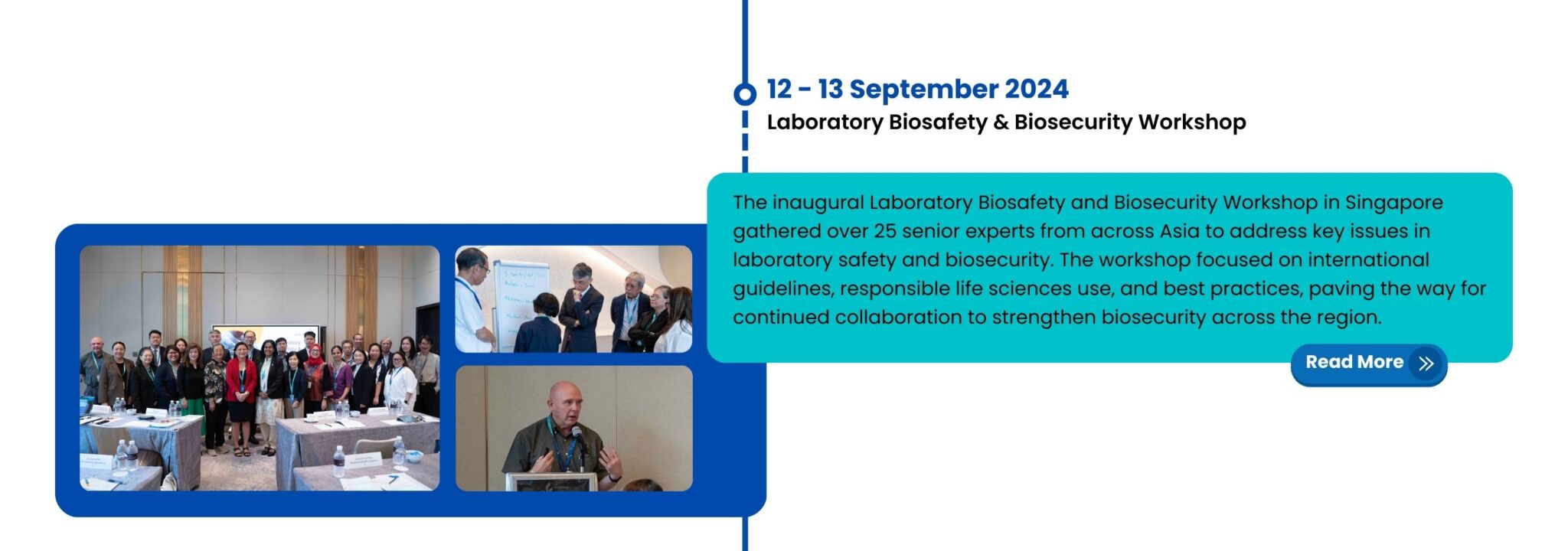
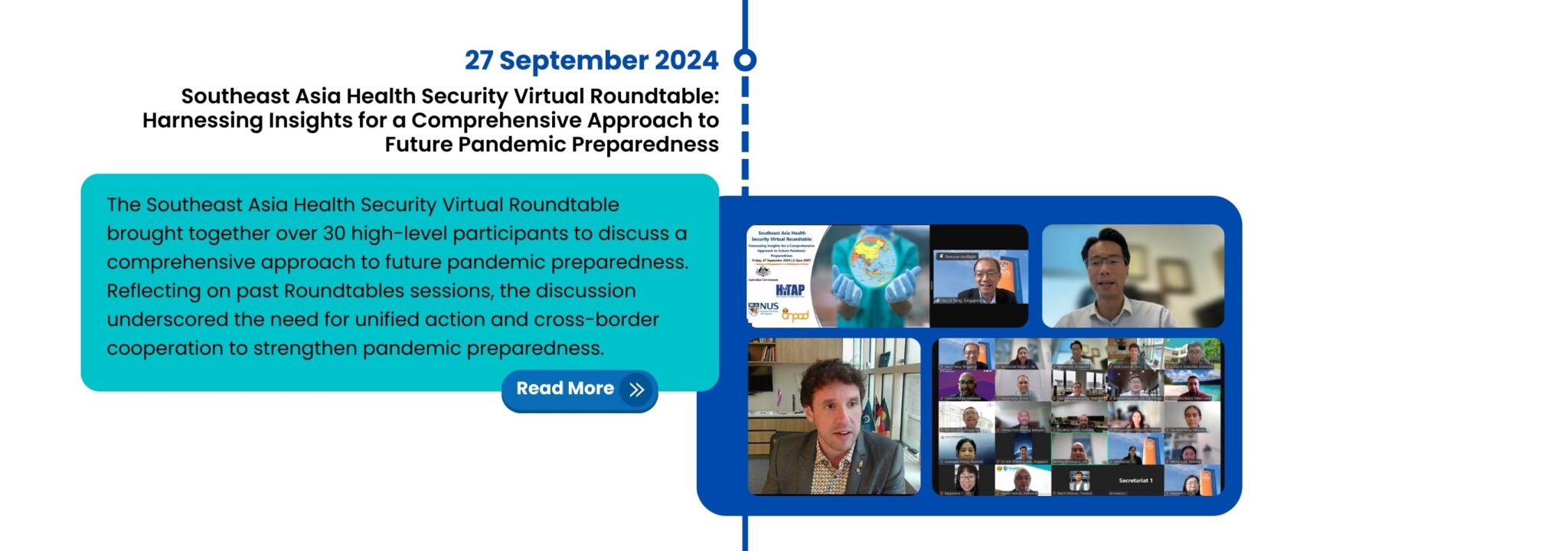
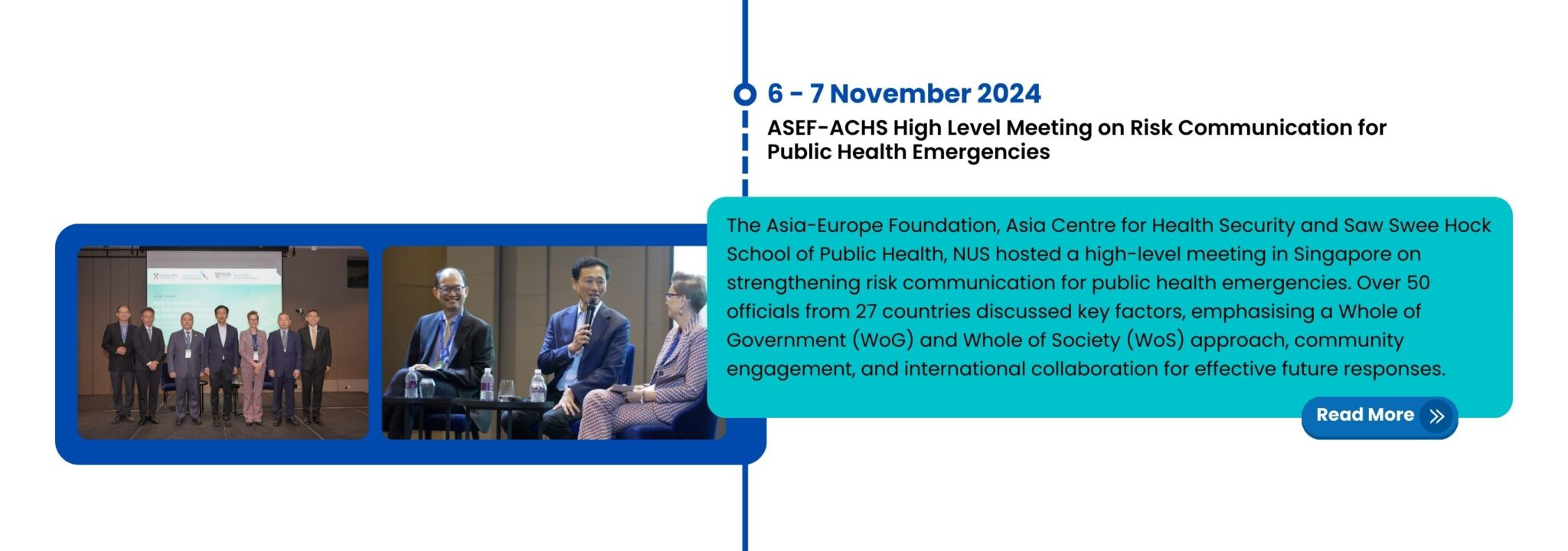

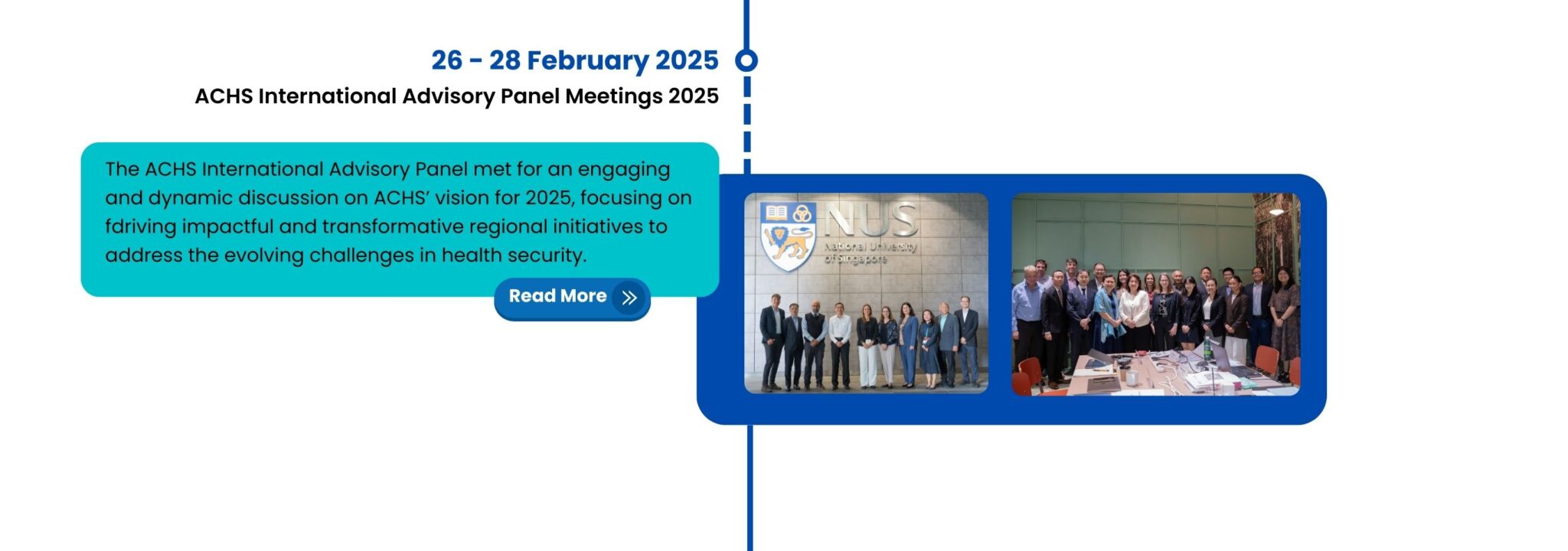
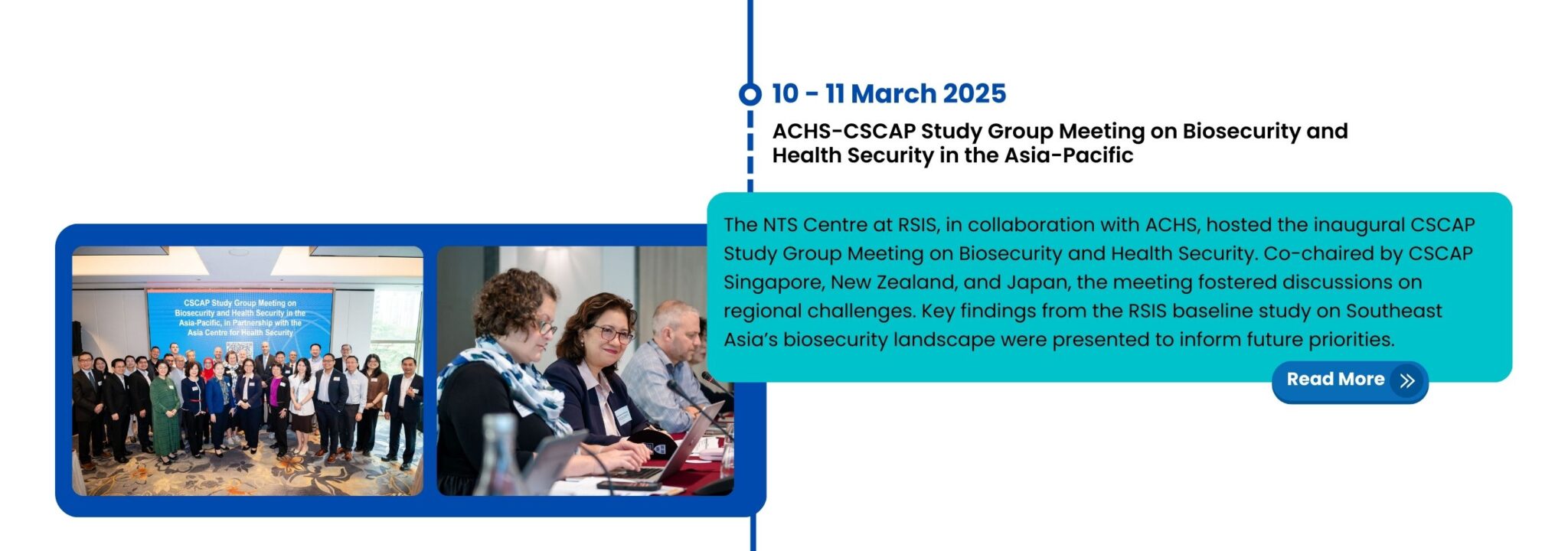
ACHS Staff at ACHS One Year Anniversary Dinner
The ACHS staff came together to celebrate our One Year Anniversary at a special dinner, marking a key milestone in our journey. The evening was a time to reflect on our achievements and express gratitude for the collective efforts that have fueled our success. We recognized the dedication of each team member and looked ahead to the continued growth and impact of ACHS in the years to come.
Looking Ahead
As we step into our second year, we remain deeply committed to building on our foundation of collaboration, research, and resilience. We will continue to strengthen partnerships, explore innovative solutions, and lead efforts to enhance health security across Asia. Our focus will remain on ensuring that communities are better prepared for future health emergencies and that we remain at the forefront of advancing global health security. The journey ahead is full of possibilities, and we are excited to continue working alongside our partners to achieve even greater success in the coming year.
